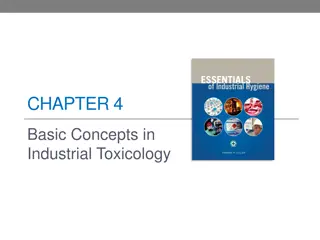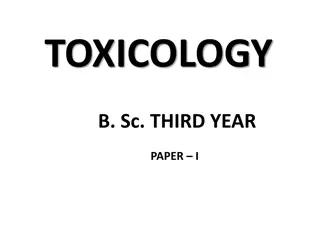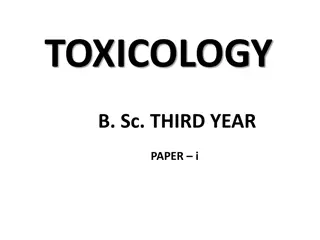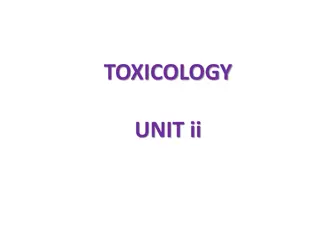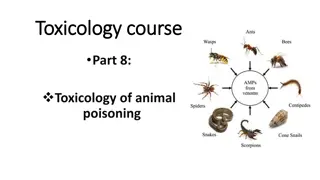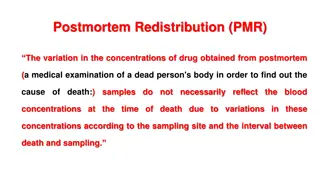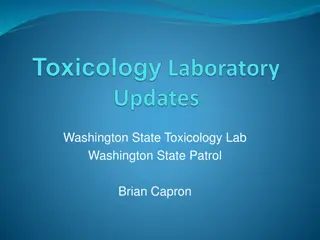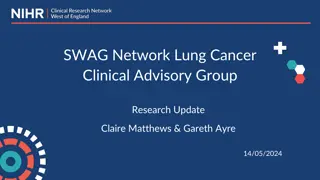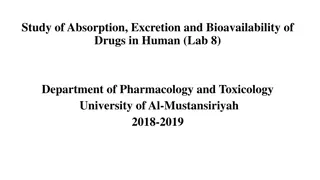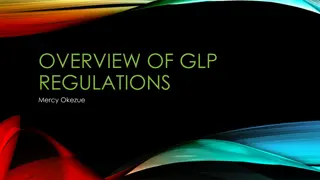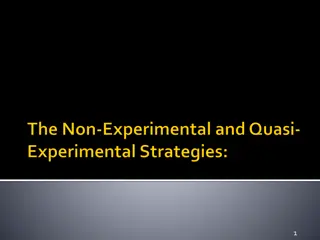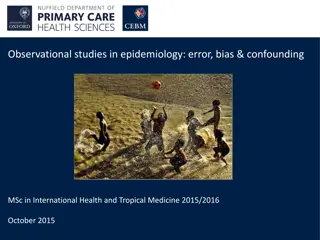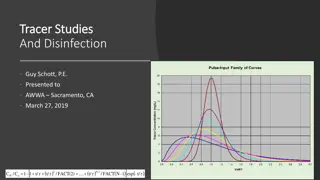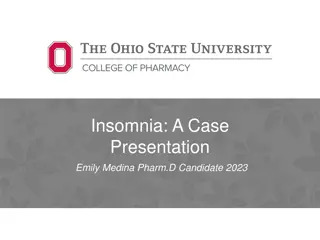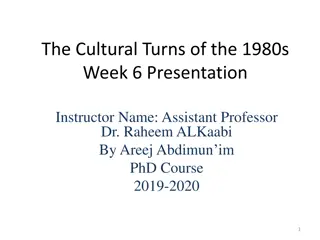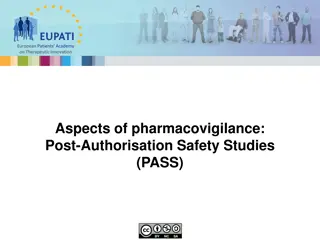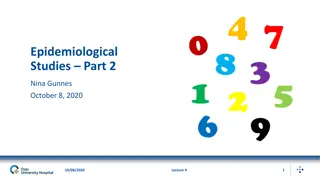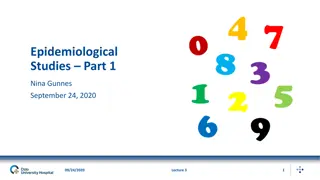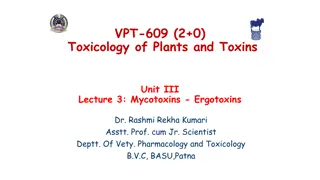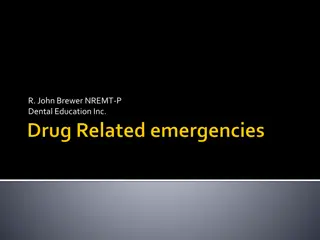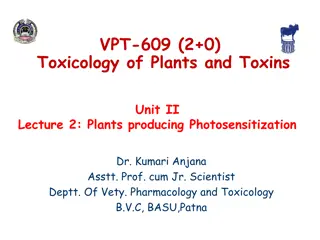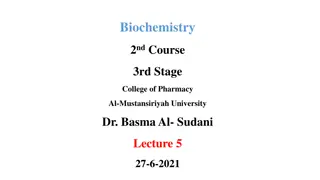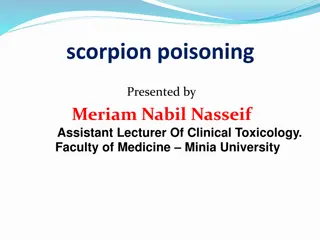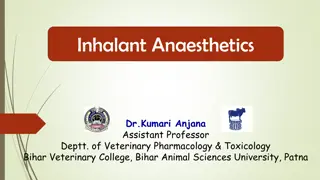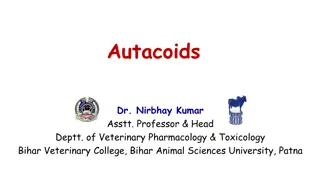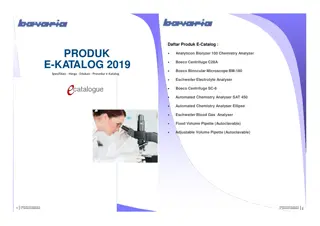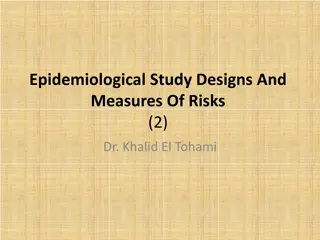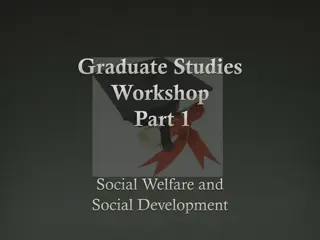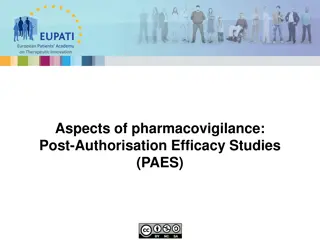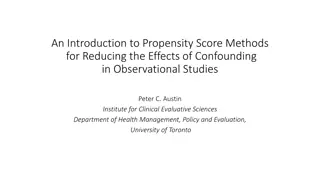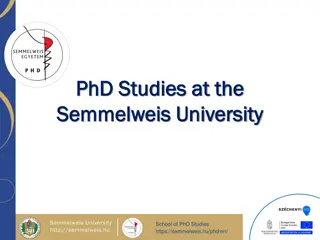Understanding Toxicology: Genotoxicity, Carcinogenicity, and Teratogenicity in B Pharm Studies
Genotoxicity involves damage to genetic material, carcinogenicity is the process of abnormal cell growth leading to cancer, and teratogenicity studies birth defects from exposure to toxic agents. These topics are crucial in understanding the impact of chemicals on living organisms and their genetic makeup.
Download Presentation

Please find below an Image/Link to download the presentation.
The content on the website is provided AS IS for your information and personal use only. It may not be sold, licensed, or shared on other websites without obtaining consent from the author. Download presentation by click this link. If you encounter any issues during the download, it is possible that the publisher has removed the file from their server.
E N D
Presentation Transcript
Toxicology: Genotoxicity, Carcinogenicity and Teratogenicity B.Pharm. Sixth Sem. BP602T
GENOTOXICITY It is a word in genetics defined as a destructive effect on a cell's genetic material (DNA, RNA) affecting its integrity. Genotoxic chemicals are defined as compounds that are capable of modifying the hereditary material of living cells. Genetic Toxicity results from damage to DNA and altered genetic expression. This process is known as mutagenesis. The genetic change is referred to as a mutation and the agent causing the change as a mutagen. Therefore, genetic toxicology includes the study of mutations, alterations in chromosome number, damage to chromosomes and primary DNA damage that may or may not ultimately lead to a heritable mutation. Genetic toxicology is a part of applied toxicology.
CARCINOGENICITY Carcinogenicity is a complex multi-stage process of abnormal cell growth and differentiation which can lead to cancer. The term carcinogen denotes a chemical substance or a mixture of chemical substances which induce cancer or increases its incidence. Chemicals which are known to cause cancer are called carcinogens At least two (02) stages are recognized: 1. Initiation in which a normal cell undergoes irreversible changes and 2. Promotion in which initiated cells are stimulated to progress to cancer. A tumor (neoplasm) is simply an uncontrolled growth of cells. Benign tumors grow at the site of origin; do not invade adjacent tissues or metastasize; and generally are treatable. Malignant tumors (cancer) invade adjacent tissues or migrate to distant sites (metastasis). They are more difficult to treat and often cause death
TERATOGENICITY: Teratology is the science of studying and investigating the birth defects/ congenital malformations and their causes/etiologies. On exposure to a toxic agent, a developing embryo will exhibit a response that ranges from none to severe (i.e. death or malformation and stillbirths). Teratogen is an agent that, once in contact with a pregnant mother, will produce a defect in the developing fetus. A teratogen can be either a physical substance or a condition in the mother. The resulting defect can be either a physical abnormality or a functional defect during embryo development, called teratogenicity. The thalidomide tregedy of the early 1960s increased our understanding of developmental toxicology, and it was the first publication alarming the scientific world to the defect. The etiology of human malformations includes both genetic and environmental factors.


